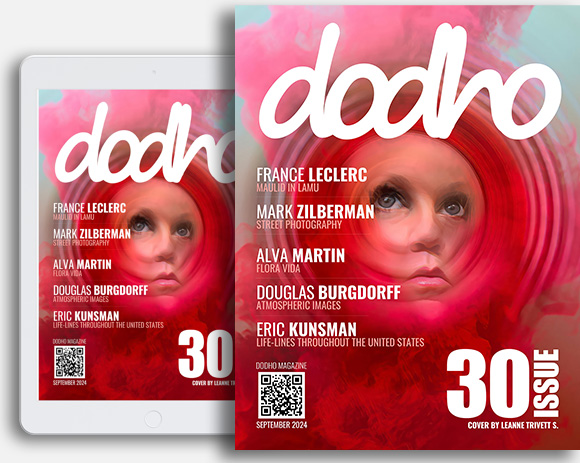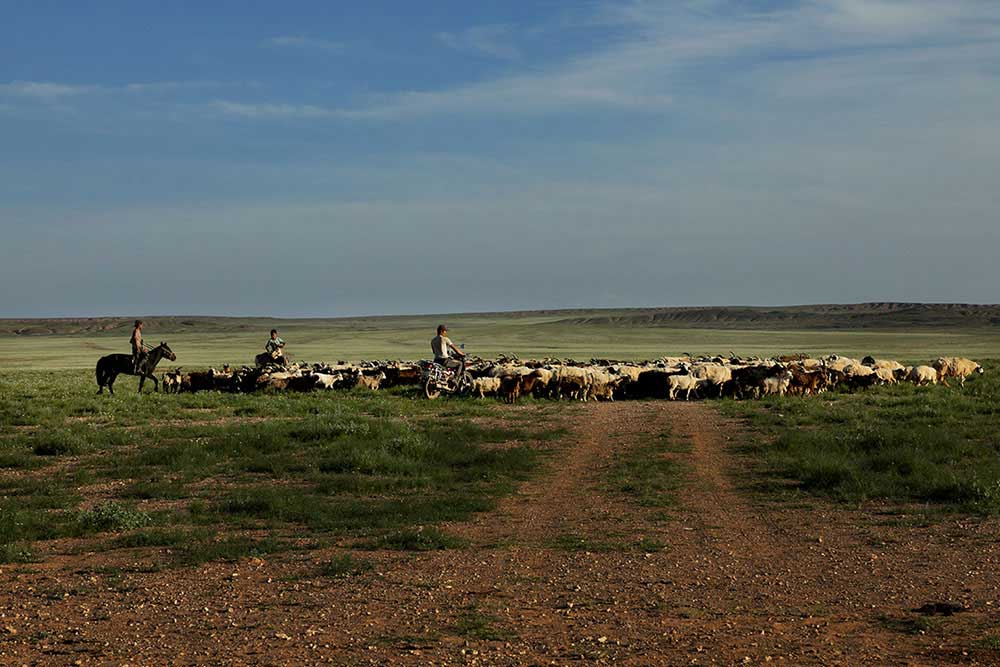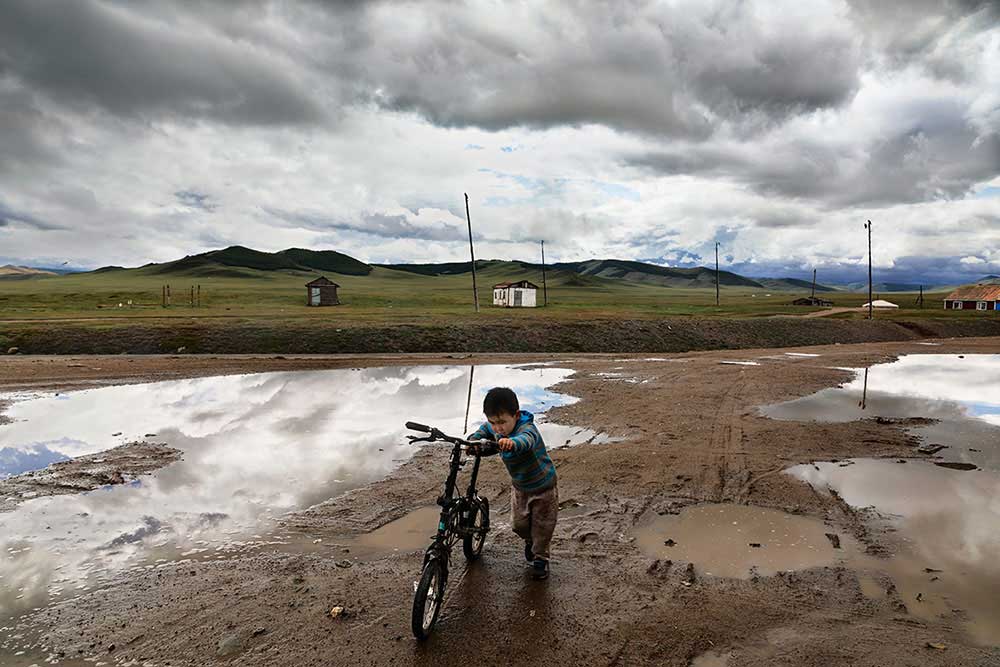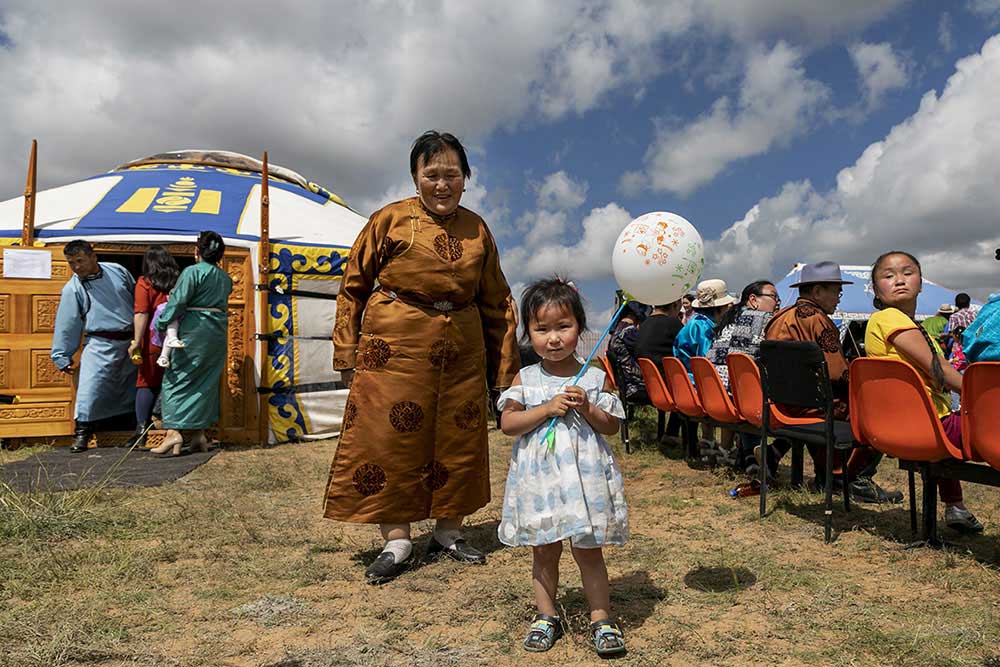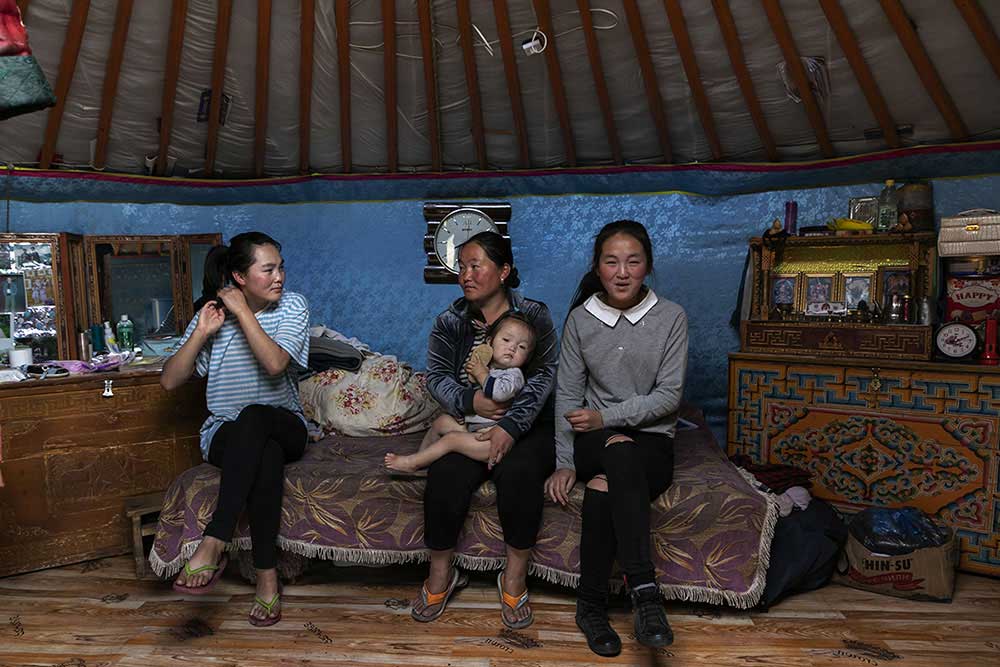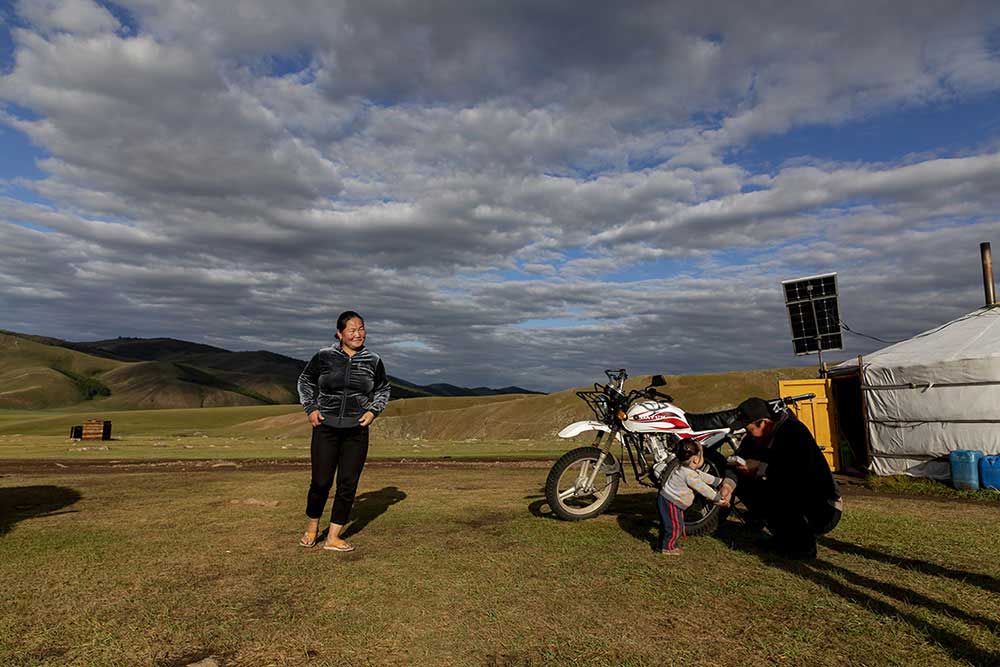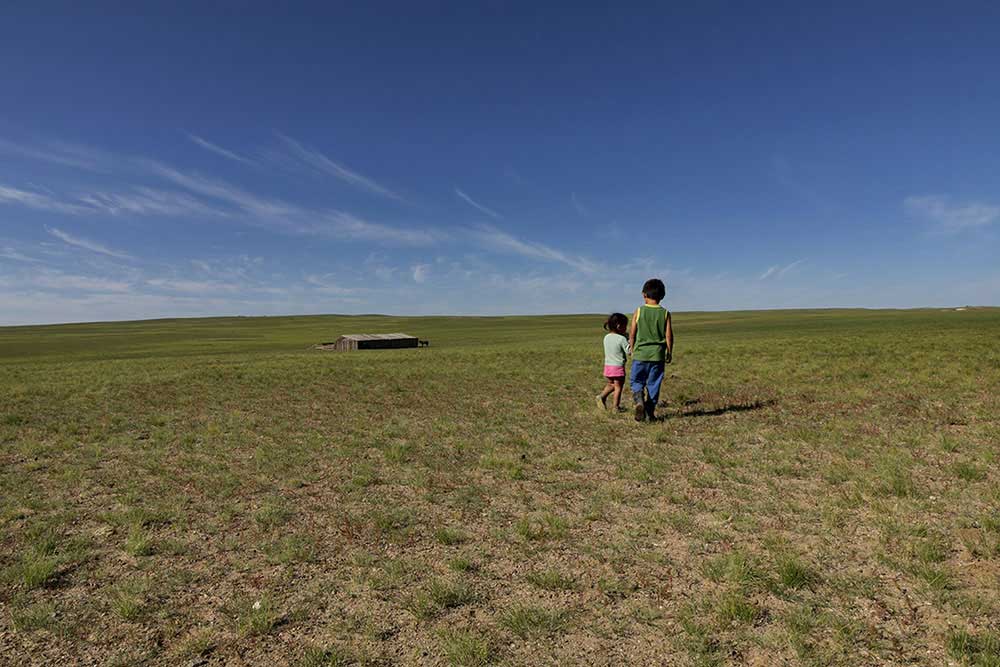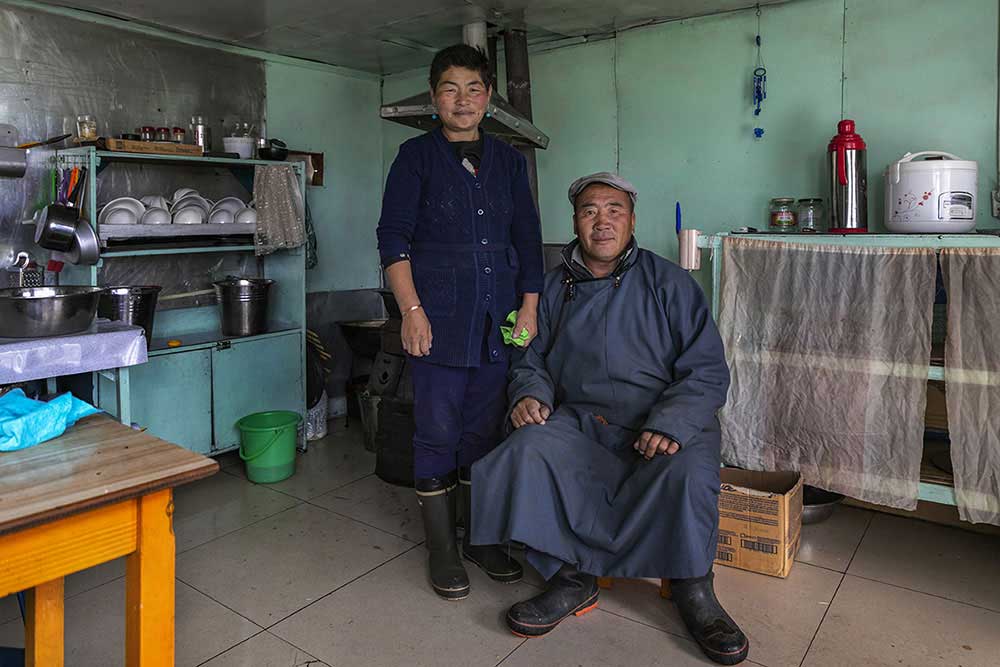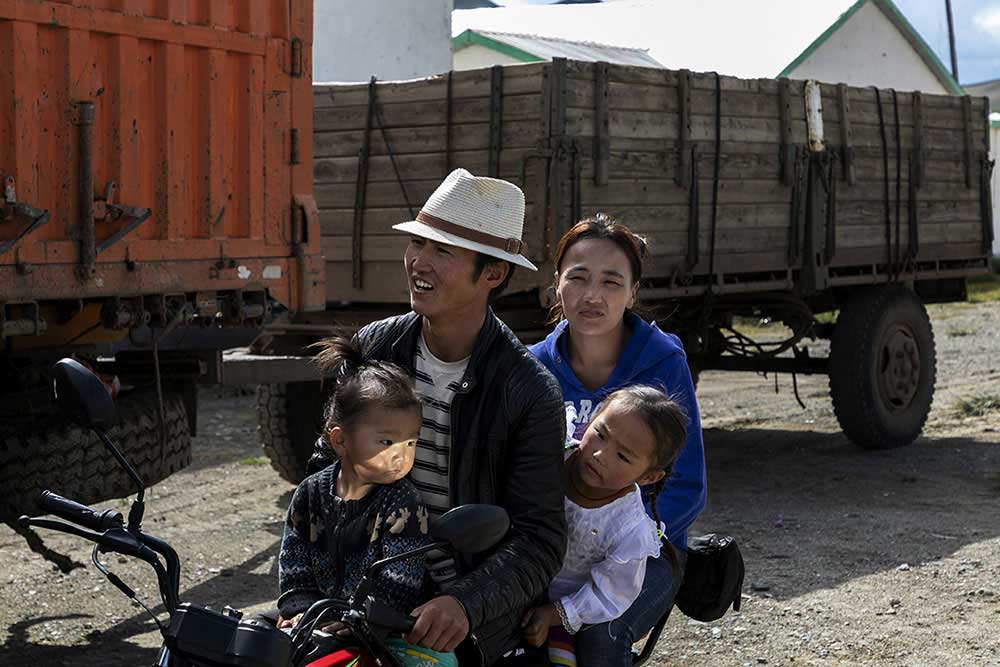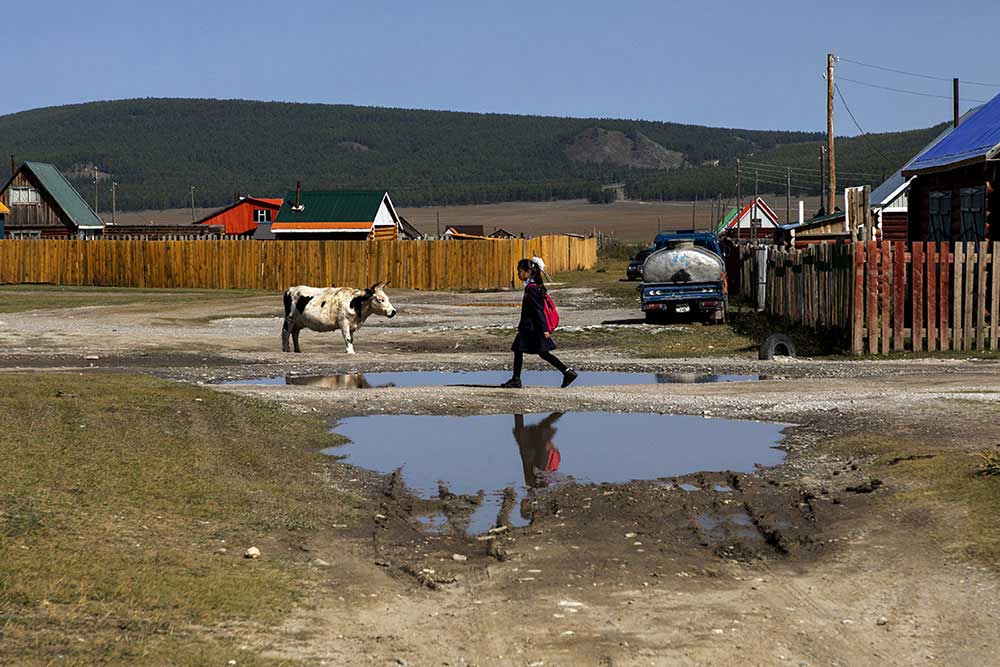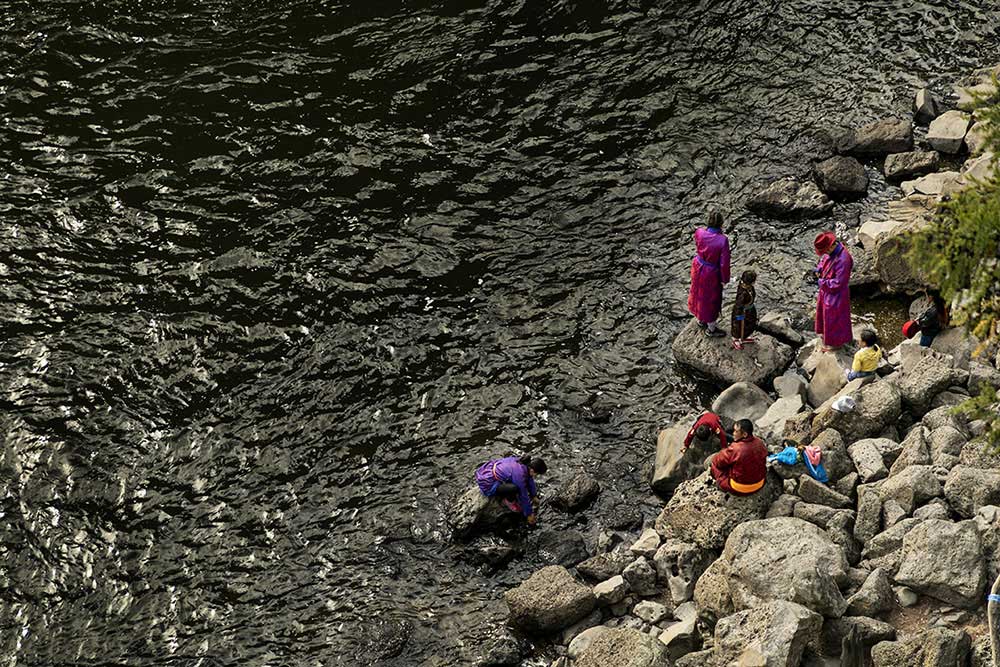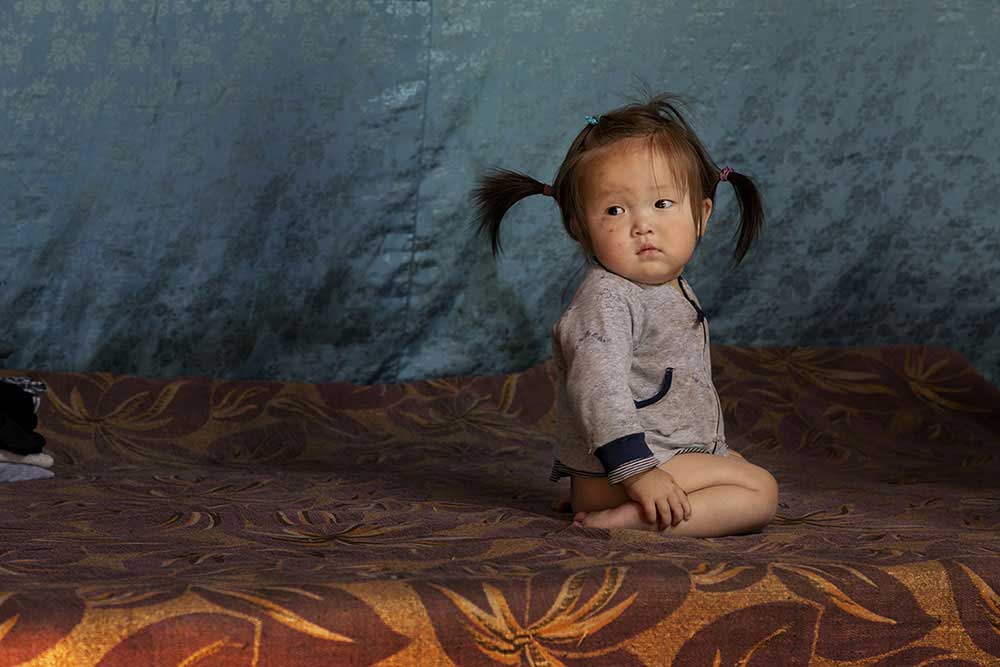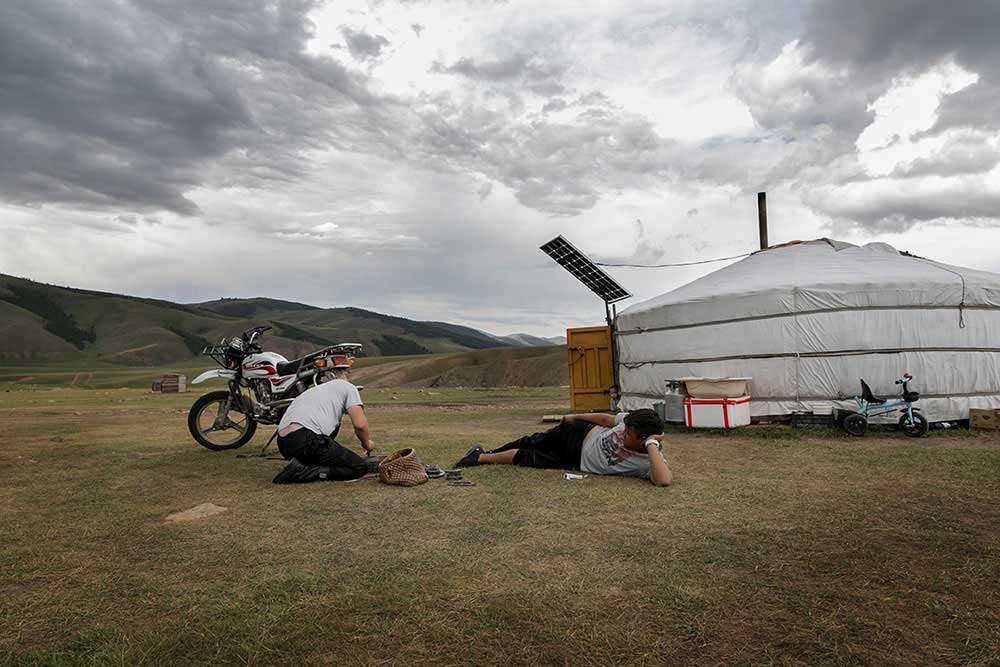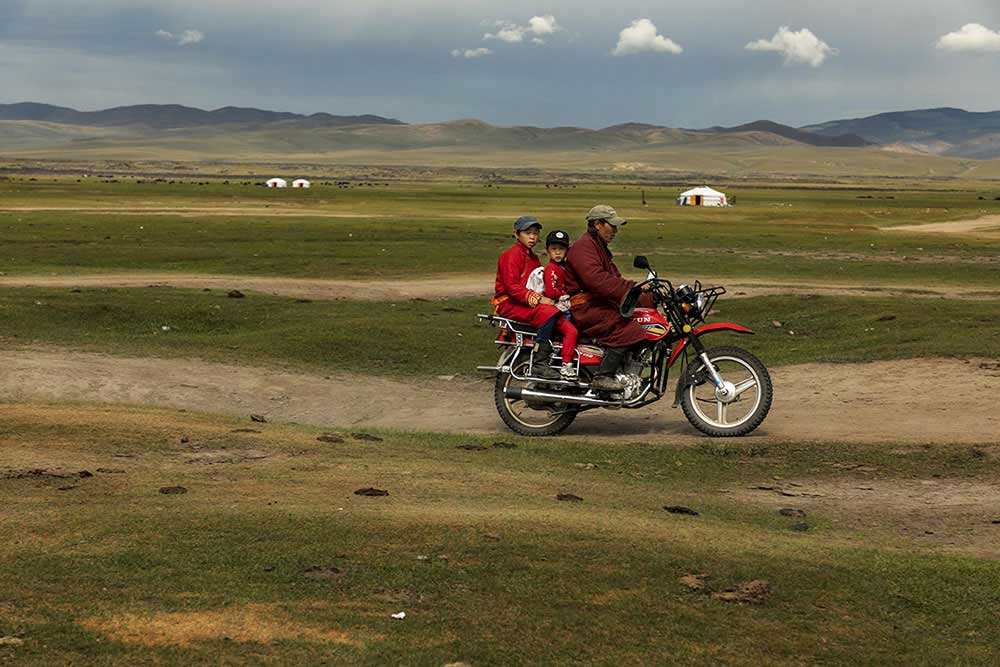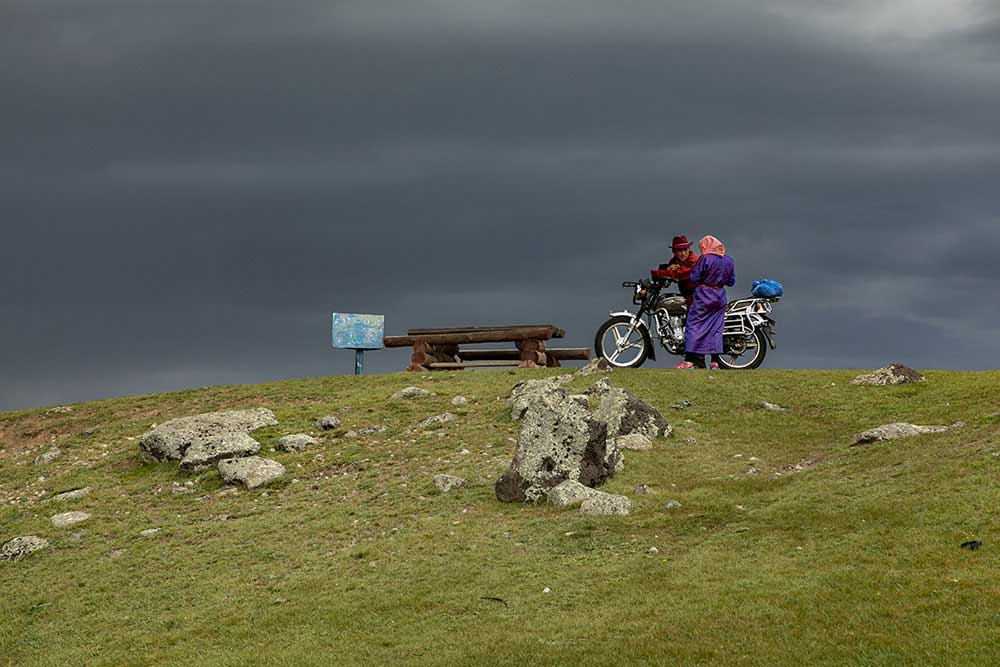Three million inhabitants halves of which reside in the capital.
The remainder is divided between small urban centers consisting of a few wooden houses and a few shops, and the nomadic shepherds who live in the endless spaces of the prairies; the latter practice subsistence pastoralism raising horses, sheep, cattle, from which they obtain everything they need: food, milk, clothing. A difficult and suffering reality, always struggling with the harsh climate and the man-made disasters aimed to support the booming mining sector, which degrades the natural environment and its precious water resources.
The climate, the so-called dzud is the ruler of the nomadic shepherds’ life: this is how they name the countless adversities of the weather.It is the white dzud’s fault if the snow prevents the animals from reaching the forage and feed on it; the black dzud brings months of great drought due to lack of rainfall; and finally there is the long cold winter, seven months a year, when temperatures go below minus 40 degrees and beyond, killing the animals which have not been able to feed properly during the summer. And the future is not bright because the climate change of recent years makes all these adversities more and more unpredictable.
Besides the cold weather, the economy of nomadic shepherds and the future of their traditions are seriously jeopardized by man-made environmental disasters meant to support the boom in the mining sector, which on the one hand, in recent years, has given an important economic boost to the country, but on the other hand has degraded its natural environment and its precious water resources.
Southern Mongolia, near the Gobi Desert, is rich in metals and minerals, as well as containing the largest coal deposit in the world. Here, about 10 years ago, the Oyu Tolgoi was digged, the second copper and gold mine on the planet (20 kilometers of underground deposits, 450 thousand tons of copper and 9.3 of gold per year), which gave the country an unparalleled economic jolt. Just the crumbs go to the Mongolian government obviously, while the real loaf goes to the Anglo-Australian company Rio Tinto and the Canadians of Ivanhoe Mines: after all, only foreign multinationals have the capitals needed to turn natural elements into resources.
These gentlemen, to optimize their job, teared down entire landscapes, and with their dredging and high-pressure water cannons they changed the course of the rivers, and to complete the work they polluted the waters using mercury, a highly carcinogenic substance, to separate gold from rock. If the inhabitants of these valleys travel 30 kilometers daily to the source in order to get drinking water for the family, the same cannot be said for the animals whose bodies, drinking polluted waters, accumulate large quantities of these substances which are transferred to humans through the consumption of meat and milk, staples that are the basis of their diet since due to the climate there is almost no agriculture in Mongolia.
All this is wrapped in an infinite silence: could it speak, it would tell about the resilience of these people, the resilience that gives to the last nomadic shepherds of the steppe the strength to continue their millenary lifestyle, despite the countless difficulties.
About Corrada Onorifico
She is a documentary, director: for more than ten years She has written, organized and directed numerous documentaries on international tourism for various Italian broadcasters: Rai3, Rai International, Rai Sat, Gambero Rosso, also performing as the tv presenter. Today She continues the work undertaken in those years writing, travel articles accompanied by photo reports that allow him to tell your travels, still in a documentary key but with a more anthropological approach. [Official Website]


